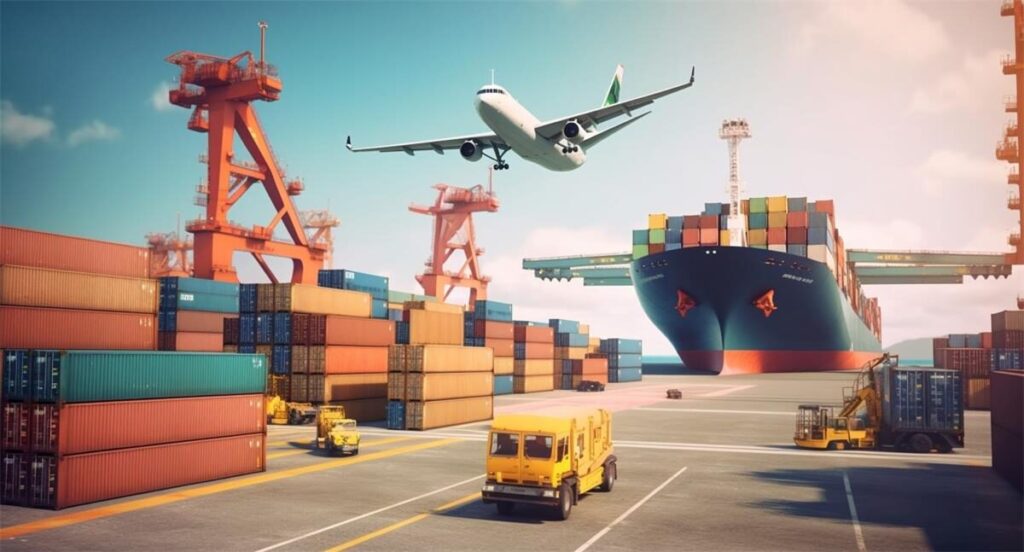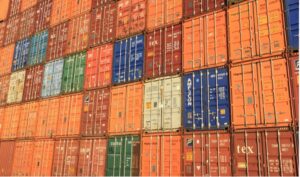Capitalizing on the burgeoning trade route between China and Moldova can unlock a wealth of opportunities for your business. This comprehensive guide delves into the intricacies of shipping from China to Moldova, equipping you with the knowledge to navigate the process seamlessly.
Overview of Shipping from China to Moldova

Moldova, a landlocked nation nestled in Eastern Europe, offers a strategic gateway to the European market. With a growing economy and a burgeoning demand for imported goods, Moldova presents a compelling destination for Chinese exporters. Fortunately, a well-established logistics network facilitates the movement of cargo between the two countries.
Popular shipping routes from China to Moldova include:
- Sea freight: The most cost-effective option for large volume shipments, with routes primarily transiting through the Black Sea.
- Air freight: Ideal for time-sensitive cargo, offering expedited delivery within a few days.
- Land transportation: A viable option for smaller consignments, often involving a combination of road and rail networks.
The optimal shipping method hinges on factors like cargo size, urgency, and budget. We’ll delve deeper into selecting the most suitable option later in this guide.
Benefits of Shipping from China to Moldova

There are several compelling reasons to consider China as a sourcing hub for your Moldovan business:
- Extensive product selection: China’s manufacturing prowess translates into a vast array of products at competitive prices.
- Economies of scale: Chinese manufacturers often offer significant cost advantages due to their high production volumes.
- Established trade infrastructure: Well-defined shipping routes and logistics networks ensure efficient movement of goods.
- Growing Moldovan market: Moldova’s burgeoning economy presents a promising market for a diverse range of products.
By leveraging these benefits, businesses can establish a robust supply chain and gain a competitive edge in the Moldovan market.
Challenges and Considerations in Shipping from China to Moldova
A successful shipping operation necessitates acknowledging potential challenges:
- Distance: The significant geographical separation between China and Moldova translates into longer transit times.
- Customs clearance: Navigating Moldovan customs regulations can be complex, requiring meticulous preparation of documentation.
- Communication barriers: Language differences can pose challenges during communication with Chinese suppliers and logistics providers.
- Limited direct routes: While sea freight offers cost-effectiveness, direct routes between China and Moldova might be limited.
Here are some crucial considerations to mitigate these challenges:
- Partner with a reliable freight forwarder: A knowledgeable freight forwarder can navigate complexities like customs clearance and ensure smooth transportation.
- Plan your shipments in advance: Considering longer lead times is essential, especially for time-sensitive cargo.
- Invest in quality translation services: Ensuring clear communication throughout the shipping process is paramount.
- Stay informed about customs regulations: Proactive research on Moldovan customs requirements is crucial to avoid delays.
By acknowledging these potential hurdles and implementing effective mitigation strategies, businesses can ensure a smooth and efficient shipping experience.
Choosing the Right Shipping Method: Air Freight, Sea Freight, or Land Transportation

The selection of the optimal shipping method hinges on several key factors:
- Cargo size and weight: Larger shipments are generally better suited for sea freight, while air freight caters to smaller, time-sensitive consignments.
- Delivery time: Air freight offers the fastest delivery times, followed by land transportation and then sea freight.
- Budget: Sea freight is the most cost-effective option, while air freight is the most expensive. Land transportation typically falls between the two in terms of cost.
- Cargo type: Perishable goods or hazardous materials might necessitate specific transportation considerations.
Here’s a breakdown of the most common shipping methods from China to Moldova:
- Air Freight: Expedited delivery within 3-7 days, ideal for high-value or time-sensitive cargo. Popular routes often involve connecting flights through major European hubs.
- Sea Freight: Cost-effective for large volume shipments, with transit times ranging from 4-8 weeks. Routes typically traverse the Black Sea via ports like Constanța (Romania) or Odessa (Ukraine).
- Land Transportation: A viable option for smaller consignments or situations requiring faster delivery than sea freight but slower than air freight. Land routes often involve a combination of trucks and railways, potentially transiting through Kazakhstan, Russia, or Ukraine.
Carefully evaluate your specific needs to select the most suitable shipping method that optimizes cost, speed, and cargo safety.
Custom Regulations and Documentation Requirements

Moldovan customs regulations play a critical role in ensuring a smooth import process. Familiarize yourself with the following essential documents:
- Commercial Invoice: A detailed document outlining the product description, quantity, value, and harmonized system (HS) code.
- Packing List: A comprehensive list of all items in the shipment, including individual weights and descriptions.
- Bill of Lading (Sea Freight) or Air Waybill (Air Freight): Documents issued by the carrier serving as a contract of carriage.
- Certificate of Origin: A document certifying the country where the goods were produced. This might be required depending on the specific product and trade agreements.
- Additional permits or licenses: Certain commodities, like hazardous materials or foodstuffs, might necessitate additional permits or licenses for customs clearance.
Partnering with a reputable freight forwarder can significantly ease the navigation of Moldovan customs regulations. They can ensure all necessary documentation is accurate and complete, minimizing the risk of delays or complications at the border.
Finding Reliable Shipping Partners and Freight Forwarders
Selecting the right shipping partners is paramount for a successful and cost-effective shipping operation. Here are some key considerations when choosing a freight forwarder:
- Experience with China-Moldova routes: Prior experience navigating the specific logistics between China and Moldova is invaluable.
- Range of services offered: Look for a freight forwarder that offers a comprehensive suite of services, including customs clearance, cargo insurance, and warehousing solutions if needed.
- Competitive rates and transparency: Obtain quotes from multiple freight forwarders and compare pricing structures to ensure you’re receiving a competitive rate.
- Communication and reputation: Choose a freight forwarder known for excellent communication, responsiveness, and a proven track record of reliability.
Recommendations: Researching online review platforms and industry associations can provide valuable insights into the reputation of different freight forwarders.
Cost-Saving Strategies in Shipping from China to Moldova

Several strategies can be employed to optimize your shipping costs:
- Consolidate shipments: Whenever possible, consolidate smaller shipments into larger ones to leverage economies of scale and potentially negotiate lower rates with freight forwarders.
- Negotiate freight costs: Don’t be afraid to negotiate rates with freight forwarders, especially for larger or frequent shipments.
- Plan your shipments in advance: Booking shipments in advance can sometimes lead to more competitive rates from carriers.
- Explore alternative routes: Depending on your cargo and urgency, consider exploring alternative shipping routes that might offer cost savings.
- Optimize packaging: Efficient packaging that minimizes dead space can lead to cost reductions in transportation.
By implementing these cost-saving strategies, businesses can streamline their shipping operations and maximize their profit margins.





